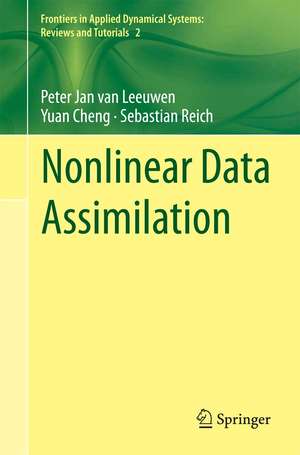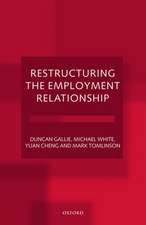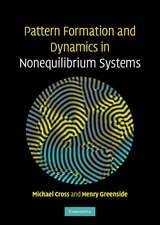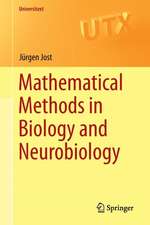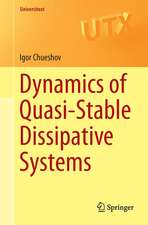Nonlinear Data Assimilation: Frontiers in Applied Dynamical Systems: Reviews and Tutorials, cartea 2
Autor Peter Jan Van Leeuwen, Yuan Cheng, Sebastian Reichen Limba Engleză Paperback – 30 iul 2015
Preț: 277.36 lei
Nou
Puncte Express: 416
Preț estimativ în valută:
53.08€ • 55.21$ • 43.82£
53.08€ • 55.21$ • 43.82£
Carte tipărită la comandă
Livrare economică 10-16 aprilie
Preluare comenzi: 021 569.72.76
Specificații
ISBN-13: 9783319183466
ISBN-10: 331918346X
Pagini: 118
Ilustrații: XII, 118 p. 19 illus., 15 illus. in color.
Dimensiuni: 155 x 235 x 12 mm
Greutate: 0.27 kg
Ediția:1st ed. 2015
Editura: Springer International Publishing
Colecția Springer
Seria Frontiers in Applied Dynamical Systems: Reviews and Tutorials
Locul publicării:Cham, Switzerland
ISBN-10: 331918346X
Pagini: 118
Ilustrații: XII, 118 p. 19 illus., 15 illus. in color.
Dimensiuni: 155 x 235 x 12 mm
Greutate: 0.27 kg
Ediția:1st ed. 2015
Editura: Springer International Publishing
Colecția Springer
Seria Frontiers in Applied Dynamical Systems: Reviews and Tutorials
Locul publicării:Cham, Switzerland
Public țintă
GraduateCuprins
Nonlinear Data Assimiliatoin for High-Dimensional Systems.- Assimilating Data into Scientific Models: An Optimal Coupling Perspective.
Recenzii
“In the present volume two solutions are presented to deal with high-dimensional systems, where both methods start from ‘particle filters’, i.e., from sequential Monte Carlo methods in which the samples are called ‘particles’. … The volume, containing many figures and references, can be recommended to readers interested in the design and application of data assimilation algorithms.” (Kurt Marti, zbMATH 1330.62004, 2016)
Notă biografică
Peter Jan van Leeuwen is a Professor of Data Assimilation at the University of Reading. His research interests include nonlinear data assimilation, geophysical fluid dynamics, interaction thermohaline and wind-driven ocean circulation, and perturbation theory.
Sebastian Reich is a Professor in the Department of Numerical Mathematics at Universität Potsdam. His research interests include uncertainty quantification, geophysical fluid dynamics, molecular dynamics, and geometric integration.
Sebastian Reich is a Professor in the Department of Numerical Mathematics at Universität Potsdam. His research interests include uncertainty quantification, geophysical fluid dynamics, molecular dynamics, and geometric integration.
Textul de pe ultima copertă
This book contains two review articles on nonlinear data assimilation that deal with closely related topics but were written and can be read independently. Both contributions focus on so-called particle filters.
The first contribution by Jan van Leeuwen focuses on the potential of proposal densities. It discusses the issues with present-day particle filters and explorers new ideas for proposal densities to solve them, converging to particle filters that work well in systems of any dimension, closing the contribution with a high-dimensional example. The second contribution by Cheng and Reich discusses a unified framework for ensemble-transform particle filters. This allows one to bridge successful ensemble Kalman filters with fully nonlinear particle filters, and allows a proper introduction of localization in particle filters, which has been lacking up to now.
The first contribution by Jan van Leeuwen focuses on the potential of proposal densities. It discusses the issues with present-day particle filters and explorers new ideas for proposal densities to solve them, converging to particle filters that work well in systems of any dimension, closing the contribution with a high-dimensional example. The second contribution by Cheng and Reich discusses a unified framework for ensemble-transform particle filters. This allows one to bridge successful ensemble Kalman filters with fully nonlinear particle filters, and allows a proper introduction of localization in particle filters, which has been lacking up to now.
Caracteristici
Consists of two contributions by leading experts in the field Provides a proper introduction of localization in particle filters, which is lacking in current literature Gives insight to sophisticated numerical techniques Includes supplementary material: sn.pub/extras
